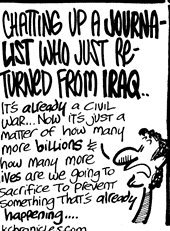Howard at the
UK/US forum e-mailed to request discussion of BrE
arse and AmE
ass. It seems Howard has come across at least one American wondering why the British "put an /r/ in
ass", when, of course, the real question is why Americans have taken the /r/
OUT of
arse. There are many useful discussions of
arse/
ass available, so I'll lazily quote
Wikipedia:
Until the late eighteenth century, "ass" presumably had no profane meaning and simply referred to the animal now mostly called donkey. Because of the increasingly non-rhotic nature of standard British English, "arse" was often rendered "ass". However indirect evidence of the change from arse to ass traces back to 1785 (in euphemistic avoidance of ass "donkey" by polite speakers) and perhaps to Shakespeare, if Nick Bottom transformed into a donkey in "A Midsummer Night's Dream" (1594) is such a word-play. This usage was also adopted in America, which is why the word "arse" is not usually used in the United States. The age of Victorian propriety resulted in the rechristening of the horse-like animal, changing the name to "donkey" (not recorded in English before 1785, slang, perhaps from dun "dull grey-brown," the form perhaps influenced by monkey, or possibly from a familiar form of Duncan, cf. dobbin) to avoid any improper inferences. Some people in Britain have adopted the American version in writing. Although before World War I they were similar, the British pronunciations of "ass" /æs/ and "arse" /ɑːs/ are now quite different. While arse is commonly used in Atlantic Canada, west of the Ottawa river, ass is more idiomatic.
So, the /r/ in
arse used to be pronounced, but now it's not pronounced as an /r/ in many (particularly southern English) British dialects, including
Received Pronunciation. Nevertheless, it's spel{led/t} with an
r no matter which British dialect one speaks. So why do some Americans think that the /r/ has been added in, rather than taken out?
My hypothesis is that it's because most Americans are familiar with dialects that add /r/s after certain vowels, even though the
r is not present in the spelling. They're used to seeing the written form without an /r/, and so figure/
reckon that any other form is a corruption, just as they consider it a corruption when people pronounce
idea as
idear and
washing as
warshing. Some British dialects have an
intrusive r, so it's not unreasonable to guess that the word that is familiar as
ass is the victim of /r/-adding.
Adding or dropping /r/s is a definite marker of geography and social class. In the US, people often consider added /r/s to be a mark of a
hick or "white trash". (It's done in many parts of the country, including rural Pennsylvania and the Ozarks.) Thus in one
on-line discussion one participant said "English people are cute. They say 'arse' instead of 'ass'", to which another American hotly replied:
"Arse" is not cute. "Arse" just makes me think of welfare moms living in low-rental housing and wearing sweatpants, running babysitting operations out of their ghetto apartments and threatening the kids into behaving themselves by shrieking "I'll tan yer arse!" with a Virginia Slim hanging out the side of their mouth.
Arse. So not cute.
So, here we have an American judging BrE
arse in much the same way that many Britons judge the American pronunciation of
herb. Even though it's the older pronunciation and the one that is natural to the dialect, it's judged on the basis of class-based assumptions that don't translate over international borders.
In BrE,
arse can also a verb.
Can't be arsed to means 'can't be bothered to'. I see that another blogger (
Troubled Diva) is promoting an acronym to be used when you want to admit you're too lazy to back up the claims you're making on your blog:
CBATG, or 'Can't Be Arsed To Google'. Another verbal use of
arse,
to arse about is vaguely equivalent to AmE
goof off. The OED includes some examples of
ass being used as a verb in
ass about, but this just isn't a common usage in the US. I actually
could be arsed to Google that, but the results were contaminated with lots of examples of
give a rat's ass about, and I couldn't be arsed to sort those out.
And while we're on our rear-ends, a few other sources of international confusion over the gluteus maximus:
Perhaps I just had a poor vocabulary in my pre-passport days, but it was only after leaving the States that I learn{ed/t} that
pratfall literally means 'falling onto the rear-end'. In BrE,
prat is known to mean 'buttocks', but is mostly used as an epithet for a dolt or a (orig. AmE)
jerk--much as
ass is used in AmE.
Americans should be warned strongly against referring to one's
fanny while in proximity to British persons. In the UK (and other parts of the English-speaking world),
fanny means a woman's genitals. Either hilarity or deep embarassment (depending on the company) ensues when American tourists refer to their
fanny packs. In the UK, these items are known as
bum bags.
Bum is, of course, another BrE word for the buttocks, which is a bit less crude than AmE
butt. Thank goodness that Americans gave up on naming babies
Fanny in the 1940s, but the Swedish still love it (though they pronounce the 'y' as a fronted 'u'; see
Think Baby Names).
Bottom only means 'buttocks' in AmE, and while it can be used in the same way in BrE, a distinction can be made between the
front bottom (i.e. the [female] genitals) and the
back bottom.
Since I've just hit
bottom, I'll make this the end (ha-ha) of this instal(l)ment.





